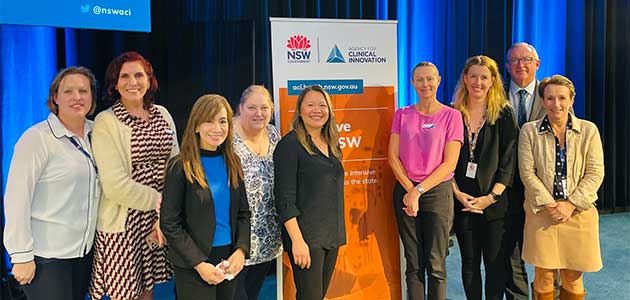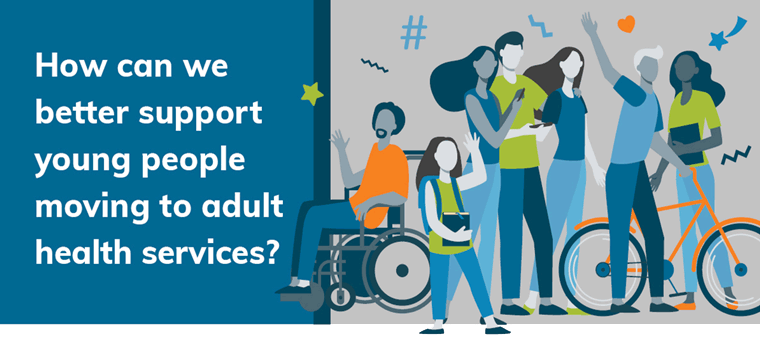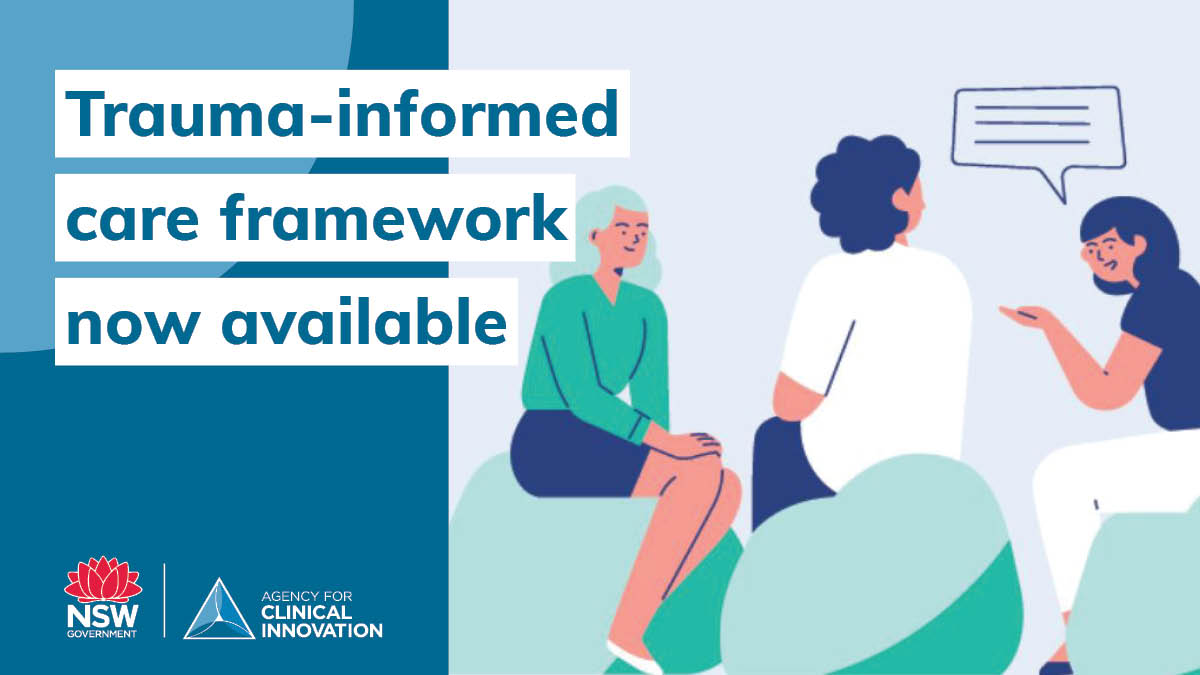The Agency for Clinical Innovation (ACI) acknowledges the hard work of clinicians and health managers across the health system in responding to COVID-19. We express our heartfelt thanks to everyone who supports the work of the ACI and the NSW Health system.
- A new digital resource is available for clinicians, health services, funders and insurers about understanding brain injury specialist rehabilitation. It outlines how integrating rehabilitation, care and community services can lead to the best patient outcomes.
- An overview of Measuring outcomes in brain injury rehabilitation programs in NSW has been published. This includes patient outcome tools currently used in specialised rehabilitation services. It outlines the Patient Reported Outcomes Measurement Information System® (PROMIS®) measures currently collected, as well as the additional standardised clinical tools used across the services.
- The ACI’s rehabilitation networks will deliver a ‘train the trainer’ workshop on 5 May on person-centred rehabilitation planning.
- With the retirement of Barby Strettles and Marion Fisher, we would like to welcome Dianne Croker as our new Brain Injury Rehabilitation Directorate (BIRD) Network Manager. Dianne has experience in rehabilitation following serious injury, an understanding of serious injuries from other perspectives, such as icare NSW, and has worked in Sydney, Brisbane and the United Kingdom.
Learn more or contact the Brain Injury Rehabilitation Network.
Kim Hobbs, Clinical Specialist Social Worker for Gynaecological Cancer at Westmead Hospital's Social Work Department, is standing down as Co-Chair of the network. Thank you to Kim for providing many years of dedicated service to the role since the network's inception in 2009. Prior to this Kim was also a member of the Gynaecological Oncology Executive Committee of the Greater Metropolitan Clinical Taskforce.
Kim has led on and supported many initiatives, including:
- the annual Gynaecological Oncology Nurses and Allied Health Group (GONG) seminar
- development of Gynaecological cancer: A guide to clinical practice in NSW
- development of the Optimal care pathway for women with cervical cancer.
Kim will continue as an active member of the network and a member of the GONG committee to support the annual seminar.
Anne Mellon, Clinical Nurse Consultant for Gynaecological Oncology at the Hunter New England Centre for Gynaecological Cancer, will join Associate Professor Russell Hogg as Co-Chair of the network.
Anne has been a member of the network since its inception, is a member of the executive committee and the GONG nurses’ group. She has collaborated on many network initiatives, including clinical practice guidelines and GONG seminars.
Anne is a board member and current Acting Vice President of the Cancer Nurses Society of Australia (CNSA) and Chair of the Gynaecology Specialist Practice Network of CNSA. She is also involved with the Australia New Zealand Gynaecological Oncology Group and is on Ovarian Cancer Australia’s Clinical and Scientific Advisory Panel.
Learn more or contact the Gynaecological Oncology Network.
- The Institute of Trauma and Injury Management (ITIM) has recommenced its trauma evenings across NSW. These are being run as hybrid events – online and in person. Last year some events attracted almost 1,000 attendees. View upcoming trauma education events
- We have started to deliver Abbreviated Injury Scale training virtually, with two upcoming sessions planned. ITIM holds the licence for this trauma-coding course, which is delivered throughout Australasia. We are seeking expressions of interest to set up more courses. This is relevant to data collection and identifying local trends and the need for education. Email ITIM to express your interest: ACI-Trauma@health.nsw.gov.au
- We have released a Fibrinogen administration in prehospital trauma evidence report. It considers if fibrinogen concentrate is a reasonable alternative to allogeneic products in the prehospital setting, by examining the literature on:
- patient mortality
- intensive care unit length of stay
- safety
- need for additional blood products
- storage
- administration
- costs.
More than 100 intensive care clinicians met face-to-face for the first time in more than two years at the Intensive Care NSW (ICNSW) Leadership Forum on 1 April.
The Hon Brad Hazzard MP, Minister for Health, opened the event, which brought together NSW intensive care leaders, representatives from the Ministry of Health, and the State Health Emergency Operations Centre to:
- discuss current intensive care issues and challenges
- share experiences
- reconnect with colleagues.
The day was led by Dr Nhi Nguyen, ICNSW Clinical Director, and the program included:
- presentations of local and statewide projects and innovations
- a panel discussion about COVID-19 and lessons learned
- a highly anticipated and light-hearted ‘great debate’.

The Hon Brad Hazzard MP, Minister for Health, with ACI staff at the ICNSW Leadership Forum.
Learn more or contact ICNSW.
A new framework for change Trauma-informed care in mental health services across NSW is now available to support the implementation of trauma-informed care in mental health services across NSW.
The framework identifies what good practice looks like for mental health systems, services and staff, and includes related actions. It will support clinicians and managers to embed trauma-informed care in their practice by translating theory into clear actions under six key priority areas.
Our next steps are to:
- develop self-assessment tool in line with the framework
- determine implementation support
- develop a trauma-informed care champions model
- pilot the framework in local health districts and specialty health networks
- develop trauma-informed care and virtual mental health priority actions.
This work will support a transition to better value healthcare, safer mental health services, and lead to better outcomes for both staff and people accessing mental health services in NSW.
Join the Mental Health Network to be invited to attend the framework’s launch and stay updated with these next steps.
Learn more or contact the Mental Health Network.
The network has worked with key stakeholders to co-design two resources for consumers; a brochure for patients and carers to receive at their first renal supportive care consult; and a carer reported-experience measures survey, which can be used to survey carers of patients with chronic illness or injury.
If you would like to be involved in piloting these resources, please contact the Renal Network.
- The Stroke Forum, held on 31 March, showcased stroke projects and research from across NSW. Sixty-five people attended in-person and 80 attended virtually. After two years without having the opportunity to come together like this, it was great to hear about how local health districts are improving stroke care.
- The Telestroke Workshop, held on 1 April, invited project officers and stroke coordinators from Telestroke sites to come together with the NSW Telestroke, ACI implementation and eHealth teams to:
- celebrate the achievements of the past two years
- discuss implementation barriers and enablers
- develop next steps
- discuss future opportunities to support stroke care in regional NSW.
- Rural stroke coordinators also met on 30 March to set performance benchmarks and discuss opportunities for improvement and collaboration.
- On 1 April, the ACI, Ministry of Health and NSW Ambulance made changes to the stroke bypass protocol for FAST +ve patients. The initiative will see potential stroke patients bypassed to the nearest stroke centre when needed, for advanced imaging, rapid assessment for reperfusion therapies and stroke unit care.
- Claire O’Connor is stepping down as Allied Health Stroke Network Co-Chair. Thank you to Claire for her support over the last few years. The new Allied Health Stroke Network Co-Chair will be announced soon.
Learn more or contact the Stroke Network.
- During NSW Youth Week 2022 (4–14 April) we asked our ACI colleagues to consider how healthcare needs are being met for the one million young people in NSW, aged 15 to 24 years. Transition Care Network member Lily Wright also shared her story of growing up with a chronic condition and starting to use a wheelchair. Thank you to Lily for this and for being an active member of our network.
- The Transition consumer experiences survey will be open until the end of April. It is a great opportunity for young people and carers to share their experiences. Please share it with your patients and clients.

More about the Transition Care Network
Keep up to date on the latest activities across our networks, and get involved in key projects that help drive improvements in healthcare.
